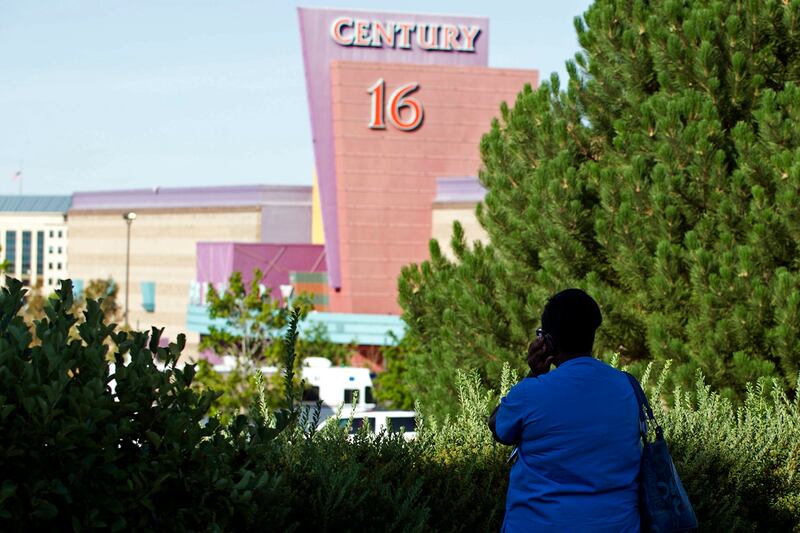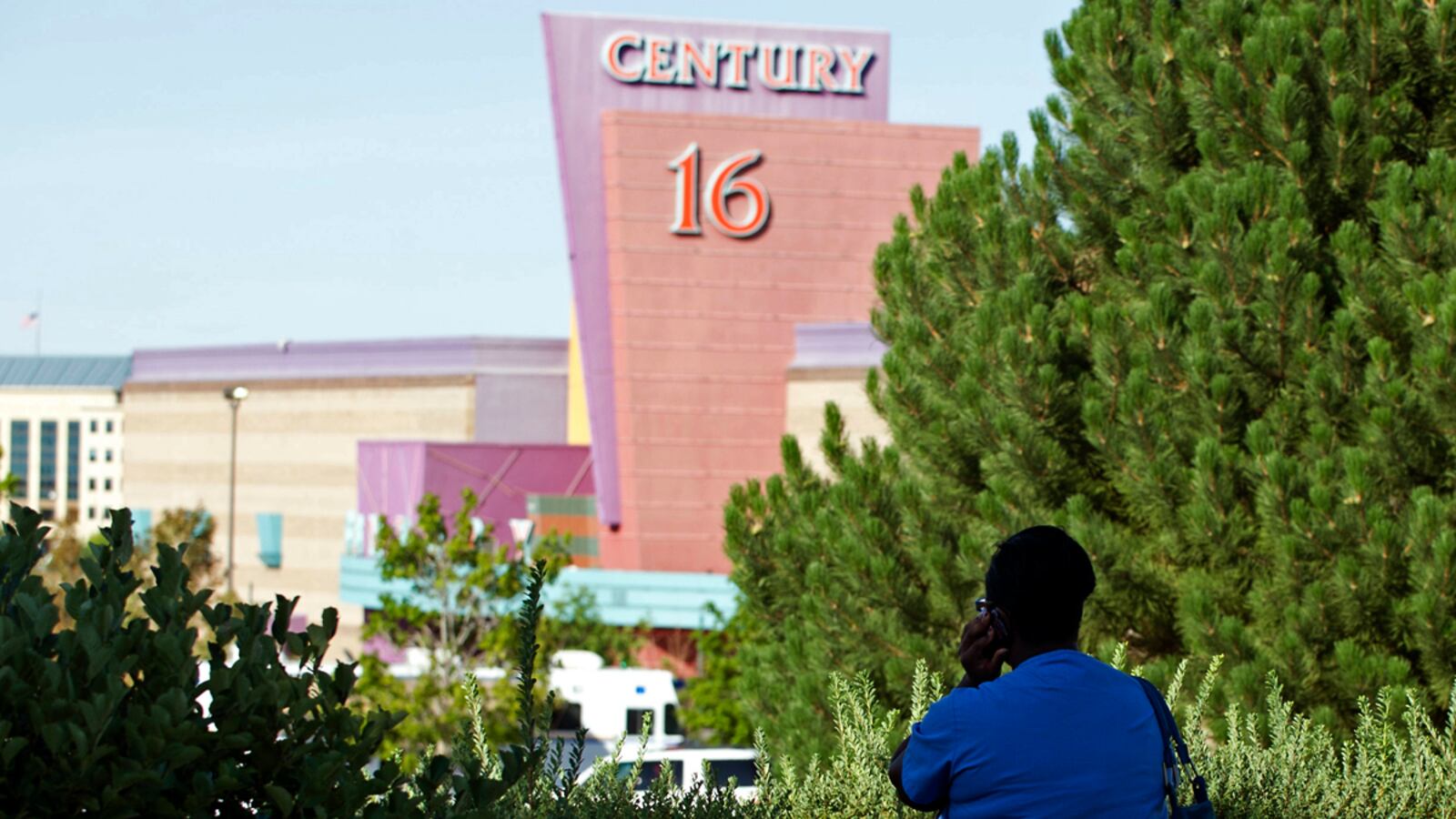As the nation tries to process the shooting tragedy in Aurora, Colo., some in Hollywood are saying it is time to take a look within—and better understand their role in creating the images of violence that permeate popular culture.

Director Christopher Nolan issued a statement after the shooting saying that the movie theater was his “home” and that it was “devastating” someone would “violate that innocent and hopeful place.”
But it seems like more and more, the movie theater has lost its luster of an “innocent” place. While few if any in Hollywood think that violence in The Dark Knight Rises, the much-awaited final installment of the Batman trilogy, caused the alleged shooter to kill so many innocent people, a few do wonder if the accumulated carnage that is consistently offered on television, the silver screen, and videogames might have desensitized the alleged killer to the very real consequences of guns and violence.
“Sad and crazy people are going to do horrible things. But when something like this happens, we do have to think about what messages we are putting across,” said one high-ranking studio executive who preferred to remain anonymous. “We all have to be more responsible probably. We all care. Movies are nowhere near as violent as videogames. I don’t think there is any movie made that is as irresponsible as any of the videogames.”
There have been shootings in theaters before, most notably in 1996 in Torrance, Calif., when a man was killed and two teenagers wounded during a showing of Set It Off, a film about four female bank robbers. The shooting appeared to have been gang-related, so soon thereafter, security guards were posted at theaters showing the film to prevent reprisals. In addition, there has been talk of opening some movies on Wednesday instead of Friday to avoid the fan frenzy that can accompany some highly anticipated movies.
The culture of fan boys, avid followers of comics and videogames, has its own sort of frenzy. This past week, one commenter on the review-aggregator website RottenTomatoes posted a message saying that a film critic should “die in a fire” or get beaten into a coma with a rubber hose for not giving the new Batman film a great review. The website took the threats down.
This speaks to a greater culture of violence that, as the critic Joe Morgenstern noted in his review The Dark Knight Rises, is vastly different from the culture that existed during the Great Depression and World War II. Back then, when so many Americans were suffering, Hollywood was in the business of making optimistic fantasies with songs like “Happy Days Are Here Again” to cheer up a weary populace.
“For whatever this film may say about today’s world, it rises to a different occasion and dances to a different tune,” Morgenstern wrote in his review before the tragedy occurred. “Happy days are done and gone.”
The same can be said for how movies are marketed. In the case of The Dark Night Rises, the film’s marketing campaign, spearheaded by the Santa Monica–based firm Ignition Creative, with its dark lithographs of a masked villain, looked more like a horror-movie campaign than something for Batman. But it captured the tone of the film.
“You can’t tone down your campaign because of what some guy was thinking,” said Russell Schwartz, former head of marketing for New Line Cinema and the president of Pandemic Marketing. “The campaign is very noir-looking. But they didn’t incite anybody to do anything. [Director Christopher] Nolan came up with another scary villain. You can’t deny the craft of the filmmaking. It is gloomy as hell, but it doesn’t seem to be keeping anybody away. People relate to the tone.”
The challenge of marketing this film still lies ahead. Jim Gallagher, a former marketing director of Disney, tried to imagine what he would do if a movie he worked on opened against such a tragedy.
Warner Bros., the studio behind the film, pulled the trailer to Gangster Squad, an upcoming mobster movie that featured heavy gunfire in a movie theater. Also, the studio canceled the Paris premiere of The Dark Knight Rises. And they expressed concern for the families involved.
“You really are in uncharted waters here on how to decide to respond to a situation like that,” said Gallagher. “I have to admit this is completely outside anything I’ve ever had to deal with and the industry has ever had to deal with.”
Until the shooting, Warner Bros. was riding a high wave of anticipation and good buzz. The shooting has given the movie an entirely different context. It’s also worth noting: the violence in Gangster Squad trailer isn’t nearly as strong as the violence in The Dark Knight Rises. If audience members would be disturbed by the trailer, wouldn’t they also be disturbed by the Batman movie as well?
Summer is often the most violent of times at the movies, with big blockbusters that feature elaborately choreographed gun fights and explosions. This summer has been no different, and Hollywood has stocked August with some of its more violent titles including the Total Recall reboot, The Bourne Legacy, and The Expendables 2. Yet because of the tragedy in Aurora, the marketing campaigns for these films may change.
“I do think you will see other movies marketed differently,” says Ronn Torossian, chief executive of 5W Public Relations, which represents celebrities and films. “I would advise anybody with a violent movie to push back the release date. I would say, get out of the summer. Push your release date back.”
It’s not that easy. Many of these films have multimillion-dollar campaigns that have been in place for months, and many of the prime release dates this fall have already been scooped up by other films. But if audiences do feel like it’s “too soon,” they could also protest by not going to the movies. Zoolander is a cult hit now, but when it was released days after the Sept. 11 attacks, the movie did poorly at the box office, after critics thought its assassination subplot was in poor taste. (An image of the World Trade Center Towers was deleted from the film just before its release.)
“It’s an extremely unfortunate situation,” says a marketing executive at a rival studio. “But I’m not sure Warner Bros. is responsible for it.”
Perhaps not. But some wonder if it may be time for society as a whole to take stock of how much violence and darkness our brains can endure. Many in Hollywood, for instance, asked why a parent would take a 4-month-old baby and a 4-year-old to see the midnight showing of The Dark Knight. Hollywood should be able to offer adults edgy material, but it is up to parents to determine if their children are old enough to digest what they have seen.
“I hope it promotes a real dialogue for all of us as Americans,” said Mark Johnson, a veteran producer whose films include The Chronicles of Narnia as well as the television show Breaking Bad. “We talk a lot about our freedoms. Well, with those freedoms comes great responsibility, and we are letting ourselves down.”





